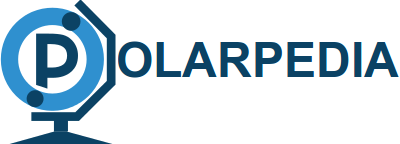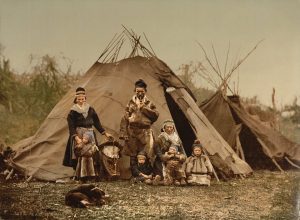Indigenous people
Indigenous people are descendants of those who inhabited a country or a geographical region at the time when people of different cultures or ethnic origins arrived. The new arrivals later became dominant through conquest, occupation, settlement or other means.
Indigenous people have strong links to territories and surrounding natural resources, distinct language, culture and beliefs.
At least 370 million people living in 90 countries across the world are considered to be indigenous.
Arctic indigenous people are about 10% of total population in the area (c.a. 400 000 people) There are over 40 different ethnic groups, including: Saami in circumpolar areas of Finland, Sweden, Norway and Northwest Russia, Nenets, Khanty, Evenk and Chukchi in Russia, Aleut, Yupik and Inuit (Iñupiat) in Alaska, Inuit (Inuvialuit) in Canada and Inuit (Kalaallit) in Greenland.
Photo: Sámi family (old photochrome)



 This project (EDU-ARCTIC) has received funding from the European Union’s Horizon 2020 research and innovation programme under grant agreement No 710240. The content of the website is the sole responsibility of the Consortium and it does not represent the opinion of the European Commission, and the Commission is not responsible for any use that might be made of information contained.
This project (EDU-ARCTIC) has received funding from the European Union’s Horizon 2020 research and innovation programme under grant agreement No 710240. The content of the website is the sole responsibility of the Consortium and it does not represent the opinion of the European Commission, and the Commission is not responsible for any use that might be made of information contained.